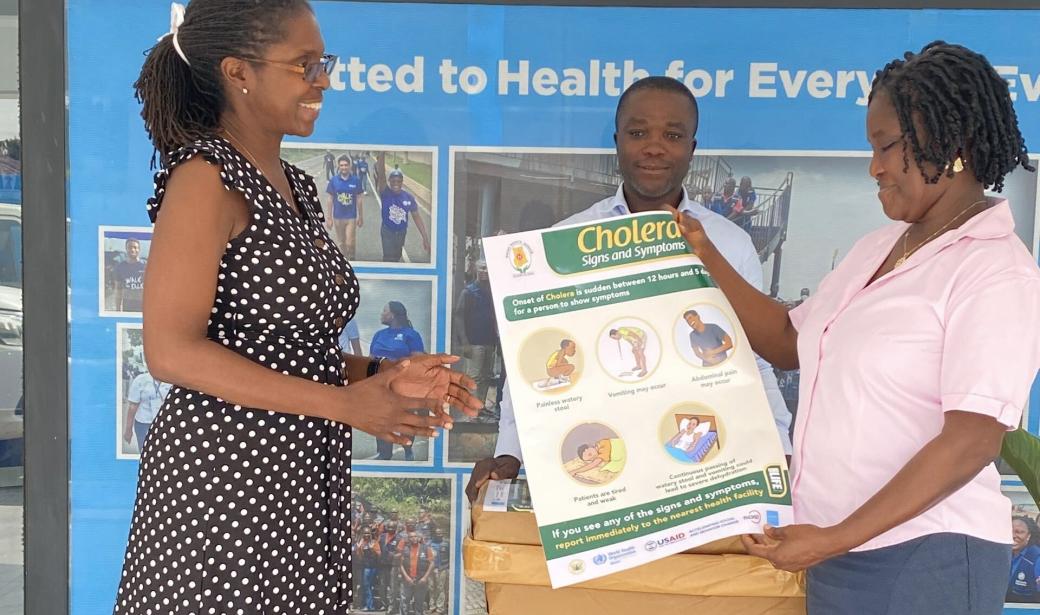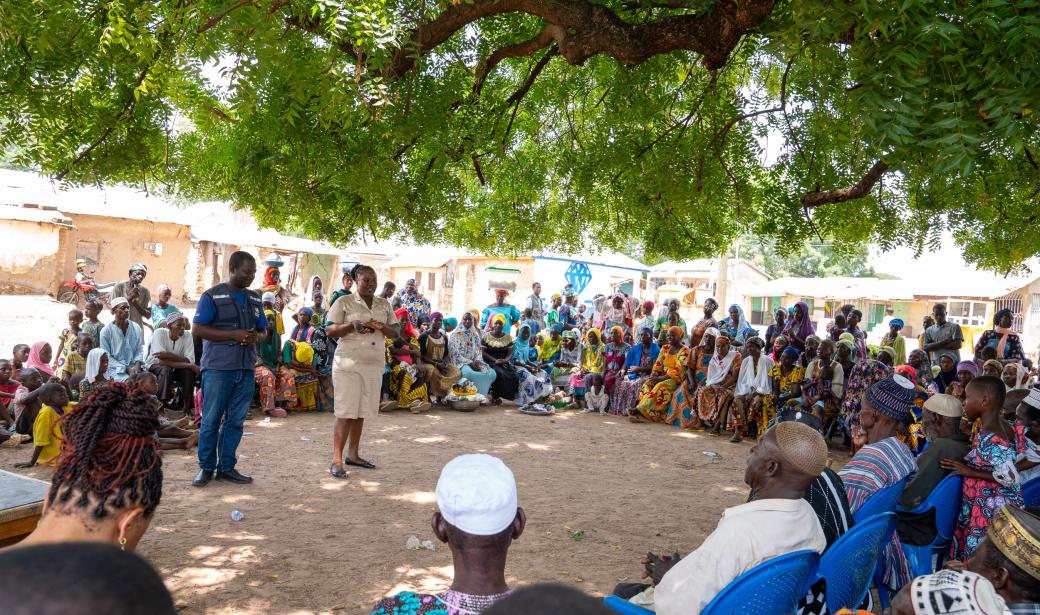Communication is at the heart of public health. It bridges the gap between science and society, ensuring that life-saving information reaches those who need it most. In the changing landscape of global public health emergencies, effective Risk Communication and Community Engagement (RCCE) have become increasingly recognized as essential for improving personal and public health. RCCE involves the real-time exchange of information, advice, and opinions between experts or officials and those facing health threats. It places the community at the center of emergency preparedness, readiness, and response activities, acknowledging that public health emergencies often begin within these communities. Consequently, their support and involvement are crucial in addressing these situations.
In 2024, as Ghana navigated multiple public health threats, Risk Communication and Community Engagement (RCCE) remained a cornerstone of WHO Ghana’s efforts, working alongside the Ministry of Health (MoH), Ghana Health Service (GHS), and other partners to protect lives and foster resilience. From cholera and polio to the reemerging threats of Mpox, Dengue, Lassa fever, and Marburg, the timely exchange of information and active community involvement proved critical in safeguarding public health. In response to these health threats, the Risk Communication and Community Engagement (RCCE) Unit of the WHO Ghana played a crucial role by collaborating closely with the Ministry of Health (MoH), Ghana Health Service and various partners to implement comprehensive risk communication and health promotion activities to mitigate the situation.
Public health messaging was not just about spreading information—it was about sparking action. Through mass media campaigns, including radio, television, and social media, WHO and its partners ensured that accurate health messages reached people in every corner of the country.
Beyond large gatherings, targeted engagements played a crucial role. WHO Ghana partnered with traditional and religious leaders, mother support groups, youth networks, and local influencers, leveraging their credibility to disseminate trusted health information. This approach ensured that messages resonated deeply and were embraced at the grassroots level.
Informed Decision-Making: Providing accurate, timely, and comprehensive information about the disease and recommending precautions enabled individuals to make well-informed decisions that better protected their health and safety. This involved understanding the nature of the risks they face, how these risks can impact their lives, and the specific actions they can take to minimize those risks.
Preventing Spread: By promoting vaccination, hand hygiene, and other preventive behaviors, RCCE played a key role in reducing disease transmission and safeguarding public health.
Building Trust: Transparent and consistent communication was vital for establishing trust between public health authorities and the community. This trust was crucial for ensuring that the public cooperated with recommended health measures, especially during the crises when compliance was necessary for an effective response.
Reducing Panic: In times of crisis, clear and reassuring communication helped to alleviate fear, counter misinformation, and promote rational responses to public health threats. By providing context, addressing concerns, and outlining the steps being taken to manage the situation, we encouraged the public to respond thoughtfully and rationally rather than being driven by anxiety.
Community Engagement: By involving communities as partners in the response, RCCE ensured that interventions were culturally sensitive, locally driven, and widely accepted. Actively involving communities as partners in public health response efforts ensured that strategies were culturally appropriate and resonated with the specific needs and values of the diverse populations, especially those affected.
For Additional Information or to Request Interviews, Please contact:
Abdul-Lahie Abdul-Rahim Naa
Communications Officer
WHO Ghana Country Office
Email: abdullahiea@who.int
Tel: +233 20 196 2393




